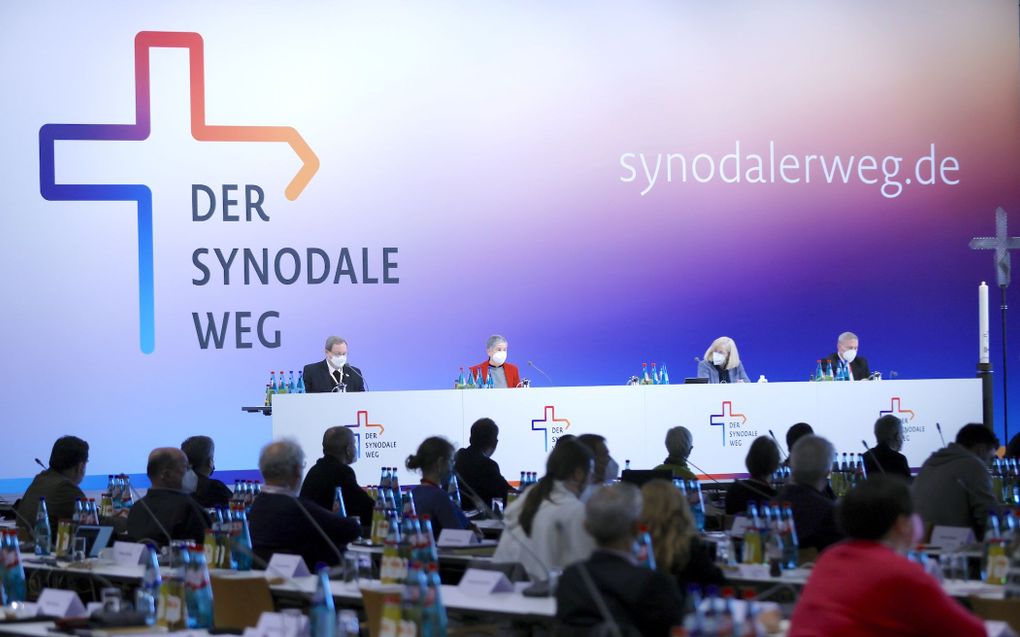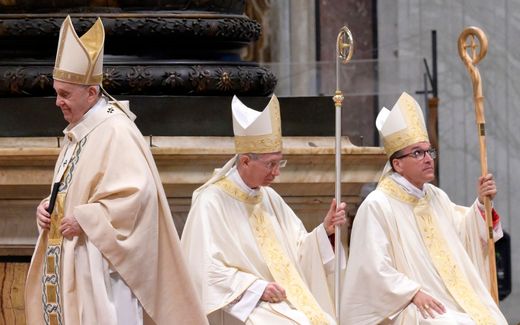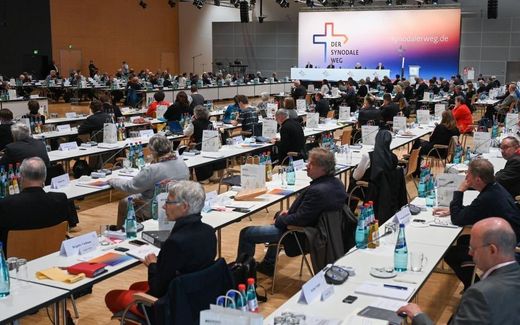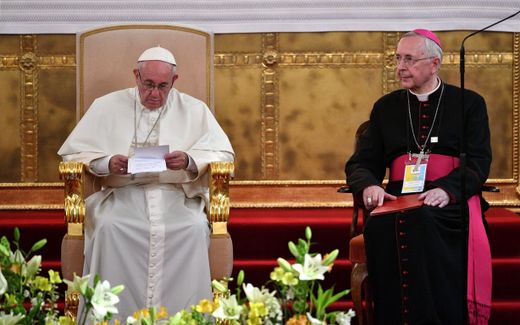German Catholics not able to reform church fundamentally

The Synodal Path during the meeting in February 2022. Photo EPA, Ronald Wittek
Central Europe
German Catholics asked the Pope to think again about the ordination of women in the priesthood. They also expressed a wish for more room for homosexuality. But, they were unable of getting the entire assembly to support a progressive text on sexual morality.
At the fourth plenary assembly of the Catholic Church in Germany's so-called "Synodal Path" reform project last week in Frankfurt, bishops, priests and laypeople called on the Pope, among others, to reconsider the ordination of women to the priesthood. The Catholic Church has so far strictly rejected this.
The three-day event was overshadowed by turbulent scenes and early departures over the handling of contentious issues, reported Catholic News Agency.
After bishops blocked a pro-LGBT document in a secret ballot on the first day, some disappointed participants protested loudly. Organisers sharply criticised the outcome and implemented changes, including an end to secret ballots.
Among other things, a large majority of the participants pleaded for the removal of taboos and normalisation in dealing with non-heterosexual priests and for more acceptance of intersexual and transsexual people. It was also about the preaching of the gospel by women.
With a large majority, the 200 delegates also voted for a re-evaluation of homosexuality. Among the supporters were 40 of the 56 bishops. In addition, the bishops declared by a large majority that they were willing to give up parts of their power. For instance, they agreed with a permanent synodical council to take important decisions.
The revision of sexual morality needed two-thirds majority of the bishops, which was not reached. According to the German Catholic News Agency KNA, a number of bishops criticised their fellow bishops, especially those who had not previously taken part in the debates.
The discussions became emotional at times. As with the previous synodal assemblies, media interest was high.
Next meeting
According to current planning, the fifth and probably last meeting will take place in March 2023. Then it should also go to about topics and texts, which were dealt with this time in the first reading.
The church's Synodal Path reform project in Germany was launched in 2019 in response to the deep crisis of confidence that was caused primarily by the abuse scandal. Reform forces want to change the "systemic causes" of abuse above all. Others warn against German special ways that could lead to a split in the world church.
Between the sessions, there have been repeated warnings from the Vatican and other bishops' conferences. The Vatican recently spoke out against new governing bodies, provided they would stand above the bishops. For instance, the Pope himself said this summer that one Protestant church in Germany is enough, as CNE reported.
Many of the required reforms cannot be implemented by the church in Germany alone. The bishops want to introduce the results of the German "Synodal Path" into the worldwide synodal process initiated by Pope Francis. A first opportunity to do so will be the German bishops' joint ad limina visit to the Vatican in November.
Reactions mixed
The reactions to the fourth session of the Synodal Path are mixed. Some were happy with the "small but important steps". Others were very disappointed by the failure to reform the sexual morals.
From the diocese of Aachen, bishop Helmut Dieser said in an interview with Christ und Welt in the weekly Die Zeit that homosexuality is God’s will. “Homosexuality is not a glitch of God but willed by God to the same extent as creation itself," he said.
His view on this had changed, he said. Through the ages, the Catholic Church viewed homosexuality as a sin. Today it is usually emphasised that the disposition is no problem. But at the same time, Catholic world church still teaches that homosexuality should not be lived out. Last year, the Congregation for the Doctrine of the Faith made it clear once again that it was "not permissible" to bless homosexual partnerships, since such unions "could not be recognised as being objectively directed towards God's revealed plans."
Bishop Dieser said he was aware that Rome still viewed homosexuality as a sin. However, he thinks this is a questionable stance. “When the body becomes an expression of this love and the language of this love, then I think: love cannot be a sin.”
Break from Christian image
A very different response came from the Bishop of Eichstätt, Gregor Maria Hanke. According to Die Tagespost, he said that the new sexual ethics was “not a development” of the church’s vision, but rather a “break” from the Christian image of man in general. Especially in the discussions about the gender binary he noticed a “farewell”.
Hanke would have been willing to do a “pastoral” step but at the Synod he was asked a “doctrinal” step.
“Hostile takeover”
The conservative participant at the synod, Dorothea Schmidt, wrote a outspoken negative comment in the German magazine Die Tagespost. She spoke about a “hostile takeover of the Catholic Church”. Faithful believers from the past “would have torn their clothes”, she wrote on Sunday. “I feel sick. My head is pounding.”
“In my mind's eye I see tanks flattening the nave of the church to make room for the German-national liberal-feminist gender church. The foundation is prepared”, Schmidt says. "One is in the process of replacing church teaching with the LGBT agenda and saying goodbye to Christian anthropology. And for that, every means seems right. The Presidium manipulates beyond every imaginable level.”
Related Articles






